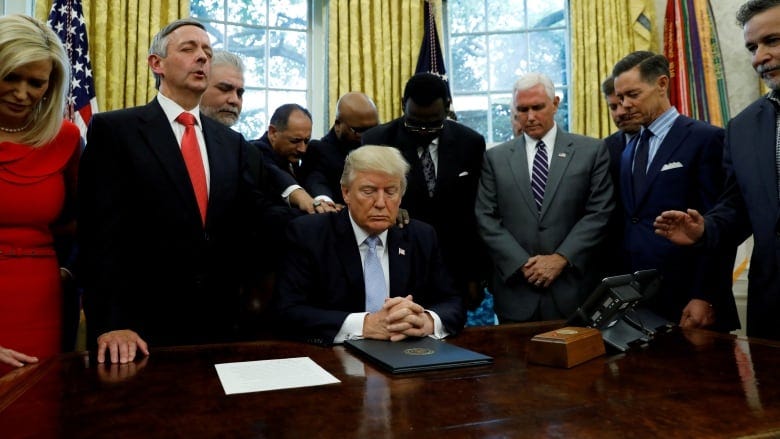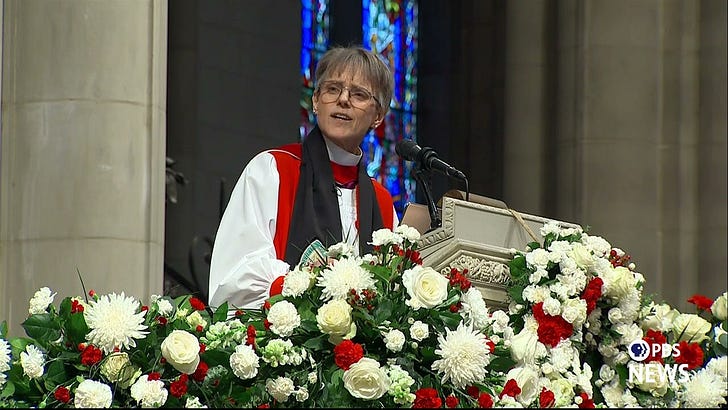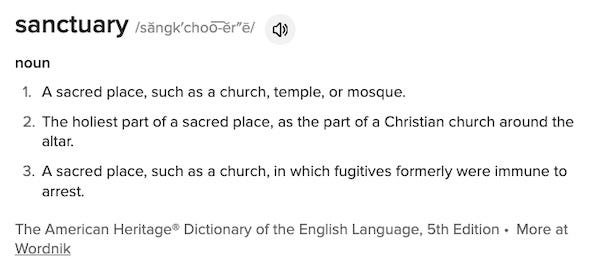Will no one rid me of this turbulent priest?
When bishops challenge kings: Thomas Becket, (1170); Mariann Budde, (2025)
Welcome new readers!
Sundman figures it out! is an autobiographical meditation, in the spirit of Michel de Montaigne, of a 71 72 year old guy who lives with his wife in a falling-down house on a dirt road on Martha’s Vineyard that dead-ends into a nature preserve.
Incidents, preoccupations, themes and hobbyhorses — among them: biodigital technopotheosis, the theory and practice of the narrative & poetic arts, and all memory and fate driven deep beneath the waves — appear, fade, reappear and ramify at irregular intervals. If you like this essay, I suggest checking out a few from the archives. These things are all interconnected.
Précis
I make some observations on the recent astounding demonstration of courage, humility, faith, and most of all, charity, by Mariann Budde, the (Episcopal) Bishop of Washington, DC, who, during a prayer service at the National Cathedral on January 21, 2025 asked Donald Trump to have mercy on the scared, weak and vulnerable people who feel threatened by him — and on the reactions to her request by prominent Trumpist Christians.
I note the parallels between what might be called the ‘Budde encounter’ to the ‘Becket Controversy’ of the late 1100’s in England, when Thomas Becket, Archbishop of Canterbury, similarly refused to be cowed by a tyrant — King Henry II.1
There are of course digressions, some of which, like the concept of ‘sanctuary,’ are related to the intersection of secular and ecclesiastic affairs, and others of which are not.
Sanctuary (1)
In the Cathedral (Washington, DC, January 2025)
At a prayer service in the National Cathedral in Washington DC shortly after the illegitimate inauguration of the insurrectionist Donald Trump, Bishop Mariann Edgar Budde, at the conclusion of her homily, bore witness to the Gospel of Jesus Christ in addressing these words to the would-be monarch Donald Trump:
She said,
“Let me make one final plea, Mr. President. Millions have put their trust in you and, as you told the nation yesterday, you have felt the providential hand of a loving God. In the name of our God, I ask you to have mercy upon the people in our country who are scared now. There are gay, lesbian and transgender children in Democratic, Republican, and Independent families, some who fear for their lives. The people who pick our crops and clean our office buildings; who labor in poultry farms and meat packing plants; who wash the dishes after we eat in restaurants and work the night shifts in hospitals. They…may not be citizens or have the proper documentation. But the vast majority of immigrants are not criminals. They pay taxes and are good neighbors. They are faithful members of our churches and mosques, synagogues, gurudwaras and temples. I ask you to have mercy, Mr. President, on those in our communities whose children fear that their parents will be taken away. And that you help those who are fleeing war zones and persecution in their own lands to find compassion and welcome here. Our God teaches us that we are to be merciful to the stranger, for we were all once strangers in this land. May God grant us the strength and courage to honor the dignity of every human being, to speak the truth to one another in love and walk humbly with each other and our God for the good of all people. Good of all people in this nation and the world. Amen”
As you would expect, Trump did not take the bishop’s words to heart; in fact he replied a few hours after the conclusion of the service in a post on his bespoke social media site, with a characteristic petulant crybaby whine, his usual narcissistic crap, with the clear implication that he would like something to be done about this meddlesome bishop; which, feel free to go look up his words if you feel like it but I’m not going to pollute my own essay with them.
Also as you would expect, Trump’s flying monkeys got the hint and quickly took off in Bishop Budde’s direction, about which more below.
In the Cathedral (Canterbury, December, 1170)
Some history, via Wikipedia (as edited & amended by me):
The ‘Becket controversy’ or ‘Becket dispute’ was the quarrel between Archbishop of Canterbury Thomas Becket and King Henry II of England from 1163 to 1170. The dispute concerned the respective rights of crown and church. The king attempted to reassert royal prerogatives and the archbishop resisted. The controversy culminated with Becket's murder, by knights loyal to the king, on December 29, 1170, near the altar of Canterbury Cathedral, and was followed by Becket's canonization in 1173 and Henry's public penance at Canterbury in July 1174.
I have nothing much to say about the details of the dispute between Becket and the King. Ostensibly they had to do with whether clergy (who, by some definitions of ‘clergy,’ included almost 20 percent of men in England) could be tried in criminal courts, or only in courts of the church. But details aside, the essence of the dispute was how much the Church could be made to function as an extension of the government headed by the king.
According to the (1964) movie Becket, staring the great pair of Richard Burton as Beckett and Peter O’Toole as King Henry II, as young men Becket and the man who would become king “wenched and brawled” across England, scandalizing their countrymen, until, (in the words of the movie’s marketing team) “King Henry II of England came to terms with his affection for his close friend and confidant Thomas Becket, who found his true honor by observing God's divine will rather than the King's.”
In the movie, Becket begs his friend to not make him Archbishop of Canterbury, but the king does it anyway, and whoosh! Becket repudiates his life of ‘a-drinking and a-whoring’2 and gets all pious and saintly (and indeed he was canonized and is now a saint of the Catholic Church.) Evidently most of this story is based on contemporary accounts, so even if the movie contains what Huckleberry Finn might call some ‘stretchers’ to make for a more dramatic movie, the stories of Becket’s turn towards asceticism after being made Archbishop of Canterbury, and of a friendship ruptured by a life-and-death Church vs Crown dispute, are true.
(If you have a few minutes, check out this over-the-top Becket trailer. It is something else. The prose is as purple as any robe ever worn by king or pope, and the narrator sounds on the edge of some kind of religious and/or sexual ecstasy himself.)
Sanctuary (2)
Copy/pasted from History.com:
The most famous scene in the The Hunchback of Notre Dame is when Quasimodo saves Esmeralda from execution, rushes her to the cathedral and cries, “Sanctuary!” Though the act is pretty dramatic (he swings in and out on a rope), it’s based on a real religious custom. In medieval Europe, fugitives really could escape the death penalty by claiming sanctuary in a church. The catch was that afterwards, they usually had to go into permanent exile.
The concept of sanctuary predates Christianity, going back at least as far as Greek and Roman temples that offered protection to fugitives. Early Christian churches competed with these pagan temples by offering their own protections, and by the end of the 4th century, sanctuary was a part of Roman imperial law. If a person murdered someone and then ran to the church to claim sanctuary, no one could could come in and harm, arrest or remove her for punishment.
Even after the Western Roman Empire fell in 476, churches maintained their authority to protect people who had broken major secular laws. Roman Catholic leaders believed a consecrated church was “protected space,” says Karl Shoemaker, a professor of history and law at the University of Wisconsin and author of Sanctuary and Crime in the Middle Ages, 400-1500. “It would be inappropriate in the extreme to carry weapons into the church or to arrest someone or to exercise force within the church.”
Only by taking into account the sacred tradition of the sanctity of the altar in Canterbury Cathedral, and the principle of sanctuary, can we understand the magnitude of the crime of the murder of Thomas Becket.
Henry II invokes his flying monkeys
Wikipedia, again, (slightly revised by me to include mention of mafiosi & the locale of Becket’s murder):
"Will no one rid me of this turbulent priest?" (also expressed as "troublesome priest" or "meddlesome priest") is a quote attributed to Henry II of England preceding the death of Thomas Becket, the Archbishop of Canterbury, in 1170. While the quote was not expressed as an order, it prompted four knights to travel from Normandy to Canterbury, where they killed Becket, as he prayed in the cathedral, due to an ongoing dispute between crown and church.
The phrase is commonly used in modern-day contexts to express that a wish by a ruler, or other powerful person such as a mafia boss, may be interpreted as a command by his or her subordinates. It is also commonly understood as shorthand for any rhetorical device allowing leaders to covertly order or exhort violence among their followers, while still being able to claim plausible deniability for political, legal, or other reasons.
Sanctuary (3)
Shortly after Covid appeared on the scene around five years ago I came upon this performance of the song ‘Sanctuary,’ by the J. Geils Band at the College of the Holy Cross (Worcester, MA) in 1972. There are other versions of the song out there, but this one is my favorite, by far. I think it’s just frickin’ awesome, and I love, love, love the tone of J. Geils’s ‘flying V’ guitar. I found myself posting this video on Twitter as a comment whenever some particularly apocalyptic story was making the news.
Times are tough; frustration I need relief; medication Gone too far; intoxication I fight the urge, of temptation Miles to go; no destination Is it real? hallucination Lose the dream; stagnation Feel so lost; desperation Sanctuary! Sanctuary! Sanctuary!
It’s not clear to me exactly what the singer’s message is — I don’t think he’s claiming that he’s in a sacred space while on stage there with a rock band. But maybe he is? Or is he begging the universe to give him a break? Who knows? Whatever, it’s great.
The spoken bit in the middle is genius:
Years ago, my momma told me, She said, 'Son, everything's gonna be alright.' There's no escape. There's no salvation. It's much too dark for revelation. Sanctuary! Sanctuary! Sanctuary!
I don’t suppose that this song contributes much to the thesis of this post (to the extent that this post actually has a thesis), but it is a great song, and it I like the gallows humor of the juxtaposition of ‘Son, everything’s gonna be alright’ with ‘There’s no escape; there’s no salvation.’
Portia and Budde on the quality of mercy
In remarks made after delivering her message in the cathedral, Budde has made clear that she asked Trump to show mercy, she did not instruct him to do so. Indeed, that should be obvious to anybody who watches the video of her homily.
Portia, in her celebrated monologue in the Merchant of Venice, explains that mercy, when not coerced but freely given, blesses both the giver and the recipient:
William Shakespeare, The Merchant of Venice, Act IV, Scene 1:
The quality of mercy is not strained; It droppeth as the gentle rain from heaven Upon the place beneath. It is twice blest; It blesseth him that gives and him that takes: 'T is mightiest in the mightiest; it becomes The throned monarch better than his crown: His sceptre shows the force of temporal power, The attribute to awe and majesty, Wherein doth sit the dread and fear of kings; But mercy is above this sceptred sway; It is enthronèd in the hearts of kings, It is an attribute to God himself; And earthly power doth then show likest God's When mercy seasons justice.
But this point — that real mercy cannot be imposed — is subtle, and subtlety is not the strong suit of flying monkeys. But to understand the vehemence of the Trumpist Christians’ reaction to Bishop Budde’s anodyne remarks, it’s instructive to consider the core concepts of their flavor of Christianity.
Performative vs Theological Christianity and the proper role of women
Here’s what one of Trump’s more prominent Christian flying monkeys, Speaker of the House Mike Johnson, had to say about Bishop Budde’s remarks:
Bishop Budde hijacked the National Prayer Service to promote her radical ideology. This was an opportunity to unify the country in prayer, but she used it to sow division. Even worse, she’s continued her political crusade in media interviews. Shameful.
Other prominent Christian Trumpists, including the usual suspects on Fox News and mega-millionaire television-preacher nepo-babies, were much more strident, some calling for Budde’s dismissal, resignation, deportation or worse. You can find their remarks easily enough if you’re into that kind of stuff.
It’s natural that these people would stand up for Trump, for they are underlings, and they accept that role, and that is what underlings do. But to understand their vehemence in this case — seemingly out of proportion, even for Republicans, to a Christian minister’s suggestion, in a Christian church, that Christ’s injunction to be merciful be considered — we must keep in mind that the essence of Evangelical Christianity is performative, not theological.
That is to say that in their flavor of Christianity the sometimes challenging teachings of Jesus — such as those of the beatitudes, among others — are of little concern. What does matter is that you publicly profess your Christianity — with bonus points for acknowledging Jesus Christ as your ‘personal Lord and Savior’ — and that you show piety — that is, deference to authority and adherence to behavioral norms and ritual — at all times. To be a Christian is to perform as a Christian according to Evangelical performance norms. These norms include how you dress, the kind of car (or pickup truck) you drive, how you decorate your home, and, very importantly, how you speak — especially if you are a woman.
To be Christian (according to Trumpist Christians) is to be pious; to be pious is to show that you know your place; and you show that you know your place by how you speak — especially if you are a woman. To be a Christian woman, to people who subscribe to this flavor of Christianity, your manner of speaking must always communicate that you understand that you are inferior and subservient.
Budde emphatically did not do that, and that is what has so enraged Trump’s Christian allies.

The importance of the ‘fundie baby voice’
There is a way of speaking among Evangelical women, sometimes called ‘the baby voice,’ and recently, especially after the television address by Alabama Senator Katie Britt in response to President Joe Biden’s 2024 State of the Union address, the ‘fundie (for ‘fundamentalist’) baby voice.’
Jess Piper, a former Missouri schoolteacher and current democratic activist, describes the fundie baby voice as ‘a high pitched, childlike, breathy voice’ used to connote submission to those above and control to those below.
[I didn’t grow up in a fundamentalist, evangelical milieu, but Jess Piper did, and she is brilliant explainer not only of how to recognize the baby voice, but also how to understand how messages about social dominance and submission are encoded in it. My wife Betty didn’t grow up in an especially hardcore fundamentalist household, but she did grow up going to a Southern Baptist church in southern Indiana, five miles from Kentucky. One of her grandfathers and two of her uncles were pretty hardcore Baptist preachers, and she’s very familiar with the baby voice. Please don’t subject Betty to hearing it, even for a joke. It’s that traumatizing.]
I strongly recommend reading Piper’s essay analyzing Katie Britt’s amazing fundie baby voice performance.
I was about to head to bed after the State of the Union last night, when I heard a voice coming from my television that stopped me in my tracks. I didn’t know who was speaking, but it really didn’t matter—I recognized the voice. It was so many voices from my childhood. It was so many Sunday mornings and Wednesday evenings. It was potlucks, and baby showers, and graduations, and birthday parties.
It was Senator Katie Britt using her well-practiced fundie baby voice.
I know that voice well. . . in fact I can’t shake it myself. It was engrained in every woman I knew from church and every time I speak about it, folks will point out that I sound that way myself. Yes, friends. That’s the point.
Be sweet. Obey. Prove it by speaking in muted tones.
You know who else speaks in the fundie baby voice? Mike Johnson’s wife Kelly Johnson, that’s who! And virtually all the wives of the Christian Trumpist men who rose immediately to denounce Bishop Budde. It wasn’t just that Budde said that so outraged them, it was how she said it — as if she were one adult citizen speaking to another adult citizen as an equal.
If you can find the time, I really recommend watching this interview by The Friendly Atheist in which Jess Piper covers the whole subject brilliantly:
When you take into account the importance of piety in Christian Nationalist Christianity, and their unquestioned superiority of men to women, the Budde encounter takes on a slightly different hue.
Because in the mind of people like Mike Johnson it was Mariann Budde who violated the sanctity of the church. By not demonstrating the deference to Trump that was proper, according to them, Budde insulted not just Trump but Christianity itself, and in a church, of all places! Budde spoke to Trump as a civil equal when she should have spoken as a vassal to her liege lord; worse, she spoke as a woman presuming equality with a man. Heck, she even spoke literally looking down on Trump, from the pulpit. In all of these ways, according to Mike Johnson and his ilk, Bishop Mariann Budde, in her own church, repudiated Jesus Christ himself.
Budde, Becket, kings and Trump
Bishop Mariann Budde is no fool. She knew that she had the power for the duration of the prayer service. Because she knew that Trump, for all his impulsiveness, still retains enough self-control to not lash back at her. She knew her remarks would be newsworthy and seen by hundreds of millions of people. She had power to speak on behalf of people who are threatened, and she used it.
But she also surely knew that Trump has always used the coded speech of the mob boss, ‘it would be nice if somebody were to help this guy go away,’ to paraphrase King Henry II. She knew that by putting Trump on the spot as she most certainly did by addressing him directly she would be subjecting herself to attacks by Trump’s flying monkey minions. She is a student of history, and she surely knew what happened to Thomas Becket and Thomas More; she knew she might be putting her life in danger. For Trump has goons who understand his suggestions as surely as King Henry had goons who understood his.
Like Beckett, Budde knows that there is an ongoing struggle between, on one side, those like Thomas Becket, and Thomas More, and Bishop Budde herself, who wish the Church to remain separate from the State — and on the other side, those like Mike Johnson and similar Christian nationalists, who wish the two entities — the Christian (by their definition of ‘Christian’) church, and the government, headed by a kingly President, to merge into one — “A USA ruled by Christ!”
Seen in that light, Bishop Budde’s brave testimony was not just a plea for mercy for the vulnerable and an actual preaching of the Gospel — anathema to performist Christians — but a stand for the how she believes Christian churches should relate to the State.
This is the same struggle in which King Henry II and his one-time ‘wenching and brawling’ companion Thomas Becket engaged. In the United States, thanks to the so-called ‘establishment clause’ in the Constitution, we’ve mostly been spared an overt battle.
Congress shall make no law respecting an establishment of religion, or prohibiting the free exercise thereof
But Trump and the Trumpist (aka ‘Republican’) Party have made abundantly clear that they consider the United States Constitution a dead letter — the establishment clause null and void. So it is only now that this Becketian battle is being joined, in the United States of America, in earnest.
[ed: Immediately after sending this email to subscribers I discovered (as I always do) some typos and places that needed a bit of smoothing, which I have now fixed. I also noticed one important omission, which I have now rectified. In my emailed version of this essay I somehow didn’t make clear that Becket was murdered in the cathedral, by goons (knights) loyal to Henry, near the altar. That’s a pretty significant detail.]
[ed: I did a second editorial pass to correct a few typos/infelicities of phrasing that escaped my first post-posting editorial pass, and also to punch up a few points where my earlier approach was a bit too timid.]
The ‘Thomas More Controversy’ of the 1530’s is also illustrative. More, who was not a bishop but, like Becket, played a prominent role in disputes between Crown and Church, defied the will of the blustering bully-boy King Henry VIII and was executed for so doing after a brief show trial.
I have a story about where I heard somebody speak those very words, but that’s a story for another time.






i loled at "Christian flying monkeys"
"Fundie Baby" voice, or as I think of it, "Sparklemotion" voice.
https://www.youtube.com/watch?v=ouFnQTq6gNQ